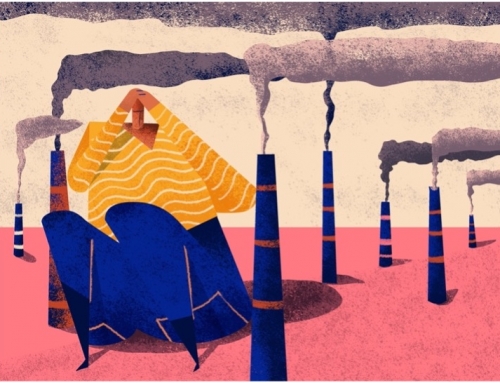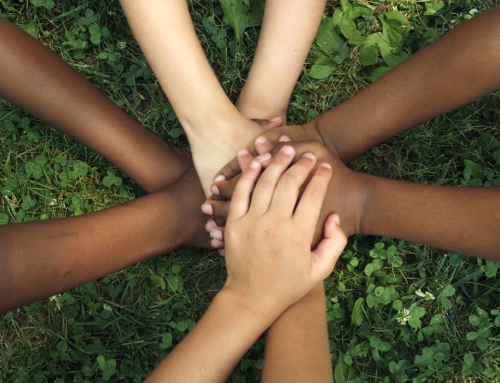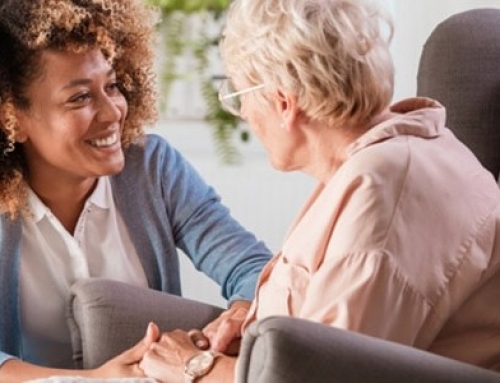28-03-2020
The outbreak
In December 2019, a virus outbreak started in the city of Wuhan in China. The corona virus, or also called; COVID-19. Currently, there is a worldwide spread of the virus, which means that we are in a pandemic. The corona virus is said to have spread from animal to human on the market in the city of Wuhan, where meat and fish were traded, often in the form of living animals (Rtlnieuws, 2020). Most patients infected with the virus have lung complaints and a fever (RIVM, 2020). The disease is transmitted from person to person and is highly contagious. A sick person can infect an average of 2 other persons. Because the corona virus causes lung complaints, people with heart and lung problems, people with diabetes, kidney patients and vulnerable elderly are a risk group (van der Plicht, 2020). To prevent these people from becoming infected, everyone in each country must obey to measures from the authorities laid down in that country. In the Netherlands, it applies to keep a distance of at least 1.5 meters at all times and stay home with mild complaints (RIVM, 2020). The virus can easily be transmitted by simply a small cough.
The world we live in right now seems almost unreal. Certain countries in Europe are on lockdown, which means that everyone is obliged to stay indoors and are only allowed to go out for groceries. Also in the Netherlands, the freedom of movement has been restricted. Hospitality industry, theaters, most shops and schools are closed and most people have to work from home to prevent the virus from spreading as much as possible. Because of this rapid spread, many people are infected at the same time. Some of these infected people who have critical respiratory complaints end up in the hospital or at the intensive care in case patients cannot breathe without an inhalator. The more people who come into critical condition and have to go to the intensive care, the more difficult it becomes for hospitals to provide all these people with the help they need. This also due to a possible shortage of inhalators. That is why it is important for everyone to stay at home as much as possible and to avoid social contact.
Time to adjust
With the schools closed and the measures taken to avoid contact as much as possible (or stay at least 1.5 meters away from each other), my new project is suddenly made a lot more difficult. It is almost impossible to convene with people from the GGD to exchange information. Besides, the GGD has something else on their mind. The GGD is deeply affected by this pandemic. Their task of making the Netherlands as healthy as possible is one of their main goals in these days. The cause of corona virus and care for all citizens of the country is now their priority. Different teams are required to drop their other duties and have been given a new task to fight the corona (Korven, 2020). For example, there are teams that try to answer all questions from concerned people by telephone or email. There is a team that monitors all infected people. There is a team that ensures that people can be tested for the virus. And so much more.
Moreover, in all this crisis because of the corona virus, there is an advantage for the GGD: the GGD is constantly in the news and on the radio, as a care-giver. “Are you infected? Call the GGD”. “Questions about the corona virus? call the GGD”.
As a result, there is a lot more brand awareness for the GGD. Especially among the young adults. Those who previously knew little about the existence of the GGD and did not have much clarity about what the GGD is specialized in, now suddenly know much more about the organization. The virus makes it more clear that the GGD is related to care and to help. Not only for STD testing and travel vaccinations, but also for health. The GGD does encounter the target group more through the virus. In fact, the target group is now reaching out to them, looking for questions and help. They are already slightly becoming more accessible.
What are the effects?
The corona virus naturally has a lot of impact on people. I am especially curious about the impact of the virus on the mental health of these people. Many families are now all “stuck” in one house, which can cause a lot of chaos. In contrast, some people are alone with their thoughts all day long, which mentally can be very exhausting. Besides, there are also people who are very afraid of the virus. People who for example, work in the hospitality industry, that no longer have a job and are struggling with financial problems, or people that belong to the high-risk groups that do not want to get infected. These are all examples of many different things that are happening at the moment. What does this do to the mental health of these people?
A psychologist could state, from a survey he recently conducted among a group of ordinary Dutch people, that 65% of the 365 respondents experienced anxiety or stress complaints. 50% also reported that they had ‘gloomy thoughts’ since the corona virus (Oosterom, 2020). The loss of a structure in daily life, such as getting up on time, preparing for work and going grocery shopping can also cause some problems. It is difficult for some people to get a grip on this new staying-at-home lifestyle. Especially when the time-period of such a situation as this is very unclear (Oosterom, 2020). It seems as if there is a big chance that a part of the society will be taken over by fear for big future discomfort.
All the ambiguities and tensions that people are currently experiencing also have a big impact on young people. Due to the stress of parents with children at home and concerns about their job, there is a lot of tension during this period. This “powerless” and “irritable” feeling can lead to child abuse. To illustrate, since the corona virus, the children’s telephone has received 50% more calls than usual (RTLnieuws, 2020). Many children call about sexual abuse, domestic violence and arguments. The reason that things are escalating with these types of families also has to do with the structure. These families are not used to being constantly around each other.
The healing process
At the moment, the corona virus is all over the news and social media. Every day there is an update on how many new people are being infected and how many people did not survive the virus. Yet, at a time like this we should also be reminded about what we can do together. Besides the measures we must take, like keeping at least 1.5 meters’ distance, there is little information about what we, as a society or individual can do to keep our body healthy. Physically and mentally. I think the GGD could respond well to this. Since mental health is also an important aspect of the GGD to focus on, they should make it clearer, especially in times like this, that people can call and ask for advice. Even while something as big as a world pandemic is going on, we should try to look at the possibilities, and for the GGD, the corona virus is bringing them one step closer to the brand awareness they need. Especially now with young people and in the field of offering help with mental health problems. Not only to help themselves, but also to help the people who are struggling at a moment like this. Because as we look at previous research, we can see that it is the loss of structure that is especially really difficult for people to find during this pandemic. Maybe we can already start there? By finding a way to keep up the structure.
References
Korven, I. (2020, March 24). Corona virus. (C. Schute, Interviewer) Breda, Brabant, Netherlands.
Oosterom, R. (2020, March 2020). dit is de invloed van corona op onze mentale gezondheid. Retrieved from trouw: https://www.trouw.nl/leven/dit-is-de-invloed-van-corona-op-onze-mentale-gezondheid~b7195557/
RIVM. (2020, March 23). covid-19. Retrieved from rivm: https://www.rivm.nl/coronavirus/covid-19
rtlnieuws. (2020, March 27). Retrieved from rtlnieuws: https://www.rtlnieuws.nl/nieuws/nederland/artikel/5071381/corona-thuis-geweld-huiselijk-geweld-kinderen-kindermishandeling
rtlnieuws. (2020, MArch 27). Corona thuis geweld huiselijk geweld kinderen kindermishandeling. Retrieved from rtlnieuws: https://www.rtlnieuws.nl/nieuws/nederland/artikel/5071381/corona-thuis-geweld-huiselijk-geweld-kinderen-kindermishandeling
rtlnieuws. (2020, March 2). covid 19 china coronavirus verspreiding patient zoektocht. Retrieved from rtlnieuws: https://www.rtlnieuws.nl/nieuws/artikel/5041716/covid-19-china-coronavirus-verspreiding-patient-zoektocht
van der Plicht, J. (2020, March 22). wanneer val je onder de risicogroep voor het coronavirus. Retrieved from nu.nl: https://www.nu.nl/coronavirus/6039163/wanneer-val-je-onder-de-risicogroep-voor-het-coronavirus.html





